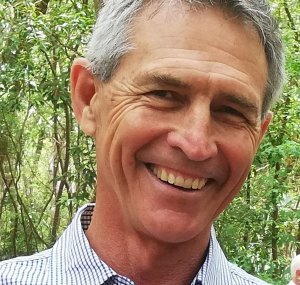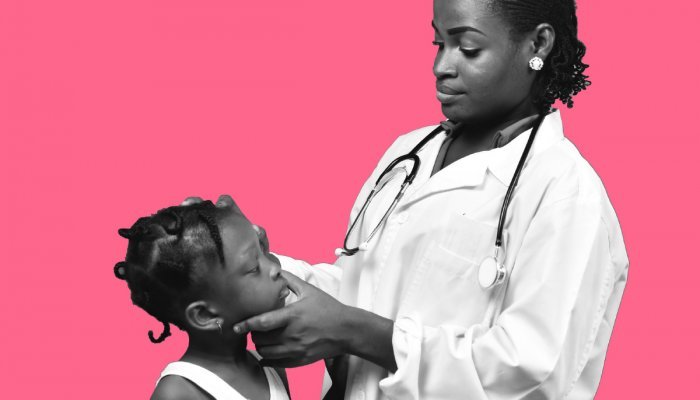Last year was all about cancelled events. But even though the coronavirus pandemic has disrupted many people’s plans, it has not stopped progress on South Africa's National Health Insurance (NHI) rollout.
“NHI will take a long time to roll out,” says Dr. Nicholas Crisp, public health specialist now working with the minister of health on the implementation of the NHI fund. “We seem to be planning with a fixation on the current situation, [but] we need to be working ahead to anticipate it.”
Crisp explains that technically speaking, we cannot establish the fund until a legal act allows for its creation. But while we cannot set up the full administrative structure, we can have the components responsible for the key functions in place now.
“There are a number of major units we’re going to build,” he says. “A lot of the preparatory work (on the benefits, for instance) will come from the Department of Health and from the private sector. So, the kinds of people we’re going to need include health economists, public health specialists, actuaries, and legal people (because there’s a lot of contracting involved). And when we get the fund itself, there’ll be bankers and accountants involved.”
Building compatible systems
Of course, there are challenges, especially when it comes to coding and technology. But Crisp explains that the team is working together with partners in the private sector and anticipates that a new organogram will be approved this year. This, together with more funding from Treasury in the next financial year, will allow for more technical specialists.
“We were under a lot of pressure trying to make decisions with inadequate data in a short space of time,” he says. “That’s something that we’ll have to confront going forward… It’s a process. We’ve been set back a lot by Covid-19, but we’ll do our best to catch up.”
The team has been working on the digital architecture for several years and now has a good understanding of the details. Database linkages will allow for interoperability with other major systems. This cohesion means that all providers who intend to be involved in NHI going forward will be able to check their systems against those standards to see what changes they need to make.
“We don’t want to force people to buy any particular software or hardware, but we do need to know that the systems they’re going to use will be compatible and will be able to share data,” Crisp says. “And that data will come from patient records as well; obviously not the whole patient record, because that’s confidential, but there’s biodata to transfer to have portability of healthcare.”
Providing holistic care
The objective is that the fund will purchase benefits that are determined to be affordable and required to meet the health needs of the population. The goal is that everyone should be able to get the care they need, which requires that the government doesn’t spend money when it’s unnecessary but instead saves money for when it’s needed.

“The intention of the NHI, if you read the whitepaper, is that all people in this country will get healthcare paid for from the fund,” Crisp says. “And that healthcare is defined to include everything required to address the major health problems and challenges of the country. It’s never been that the government will always provide everything to everybody.”
Specifically, the focus is on providing holistic care and not paying for things that don’t add value to the people of South Africa. For example, dental surgery to allow someone to eat properly is essential, while purely cosmetic enhancements (like gold teeth) are not. The focus will be on medical procedures that are justified based on evidence, bearing in mind that scientific understanding of health conditions will change over time.
“In any medical scheme in any country, there will always be services you can’t afford or which you don’t believe have clinically proven themselves, and so you don’t agree to include them in the benefits,” Crisp says. “And for those kinds of services, people will be at liberty to get separate insurance. It’s not going to be banned; it just won’t be paid for by the fund.”
Cutting waste and duplication
A big debate is whether or not the country, with its fragile economy, can even afford NHI in the first place. Crisp admits that this is something that scares people but considers it a reason for the system to be as transparent as possible.
“There are structural problems with the way we’ve set up our medical scheme environment,” he says. “And there are structural problems in the pricing that makes it beneficial to do it like that. We need to address all of those because that’s bad healthcare. People will tell you it doesn’t cost more money, but I think there’s plenty of evidence that it does.”
South Africa currently spends 8.5% of its GDP on healthcare. In determining what the country can afford, Crisp explains that there are efficiency gains to be made in reorganising the way we deliver services and that the fund's bargaining power as a big purchaser could drive down costs. This is another way to further “stretch our rands” and use resources more efficiently.
“One of our embarrassments in this country is that we get a lot of healthcare we don’t need,” he says. “For example, if I go to my general practitioner, and then I go to a specialist, both of them will ask for an X-ray because there’s no portability. And lab tests get done again and again. It wastes a lot of money. So, before we go cap in hand to Treasury, we should be able to provide healthcare to this country at 6.5% of GDP. We need to reorganise the way we deliver healthcare and cut out all the waste, excess, and duplication. Then we can go and ask for more.”
Finding common ground
Ultimately, Crisp believes that the most important thing is to talk to each other. Before Covid-19, it was difficult to find common ground “because everyone was focused on ideological differences instead of what we know needs to be done”. But since the pandemic, he has been involved in many discussions and engagements that were cordial and productive.
“Most people in the public sector don’t understand the complexities of the private sector,” he says. “Likewise, few people in the private sector understand the constraints the public sector providers have in delivering healthcare. So, we would like to continue with that spirit that we have used during the time of Covid-19 to understand one another. The more transparent, engaging, and open we are with one another, the more opportunities there are.”
Progress on NHI
According to the performance agreement between the president and the minister of health, the goal is for NHI to be “progressively implemented to achieve universal health coverage for at least 90% of South Africans by 2030”. Here are some highlights from the report:
- Enabling a legal framework for the implantation of NHI. After the NHI Bill was introduced to parliament in July 2019, the target is for the NHI fund to be established as a public entity and operational by 2021/2022 and for the NHI fund to be purchasing services by 2022/2023.
- Preparation for NHI accreditation. The target is that 25% of facilities (hospital and clinics) attain certification status per year from 2022, with 100% of facilities certified by 2025. Baseline assessments are to be conducted by the Office of Health Standards Compliance.
- Implementation of recommendations from the Health Market Inquiry (HMI). With a target of April 2022, the minister of health will ensure that the National Department of Health and relevant regulators initiate the process of standardising the way in which quality of care and health outcomes are measured throughout the private and public sectors.
Source: https://www.gov.za/ministers-performance-agreement

Three pillars of change
Dr. Stan Moloabi, principal officer of the Government Employees Medical Scheme (GEMS), isn’t proud of the country’s label as one of the most unequal nations in the world. That’s why he believes in universal health coverage as a pillar of a fair society.
“The current system, where you have access to healthcare only if you’re able to pay, doesn’t work,” he says. “We should all be able to access basic needs. And for us to move from the way we are to that future we all desire necessitates that there must be change.”
- Behavioural change
When it comes to how members access healthcare, Moloabi emphasises that the general practitioner should be the primary healthcare giver. By preventing people from ‘doctor hopping’ (jumping ahead to secondary or tertiary healthcare without going through the primary health step), we can save millions of rands.
“Changing behaviour has been achieved in two of our options where we introduced care coordination,” he says. “This means that families have to register with a nominated GP, and the GP becomes responsible for the healthcare of that family, up to and including referral. The referral system is so important in all of this. When members only go to specialist care when they’ve been referred by the GPs in our environment, we’ve achieved downstream cost savings of up to 17%.”
- Financial change
Even before the coronavirus pandemic, the South African economy was facing financial deficits due to reduced economic activity, which could impact the ability to collect taxes to fund NHI. For Moloabi, what is important is that we look forward and figure out “how we are restructuring the funding of the healthcare needs of all in the country” as a means to achieve universal healthcare.
“If you use your status as a big buyer of healthcare services properly, you can achieve efficiencies,” he says. “And I think this is where the whole thing of the government as a purchaser comes in. As a result of the pandemic and the financial pressures it has put on the government, there’s a definite agreement that all of us have to put hands on deck in terms of saving costs as best as possible.”
- Relational change
Moloabi believes that the providers – being the ones who see the patients – must be regarded as the most important players. By entering into contracts with those on its networks to agree on outcomes, GEMS has seen an improvement in the quality of care over the last few years. The only way to achieve even more in future is by setting clear objectives upfront.
“There’s a lot of technical expertise that resides within GEMS in healthcare funding and also the work that we do from a strategic point of view, such as the modelling work around how NHI is evolving,” he says. “There must be collaboration between the private sector and the public sector so that we can harness all the skills that we have and use these for us to enter that future.”







